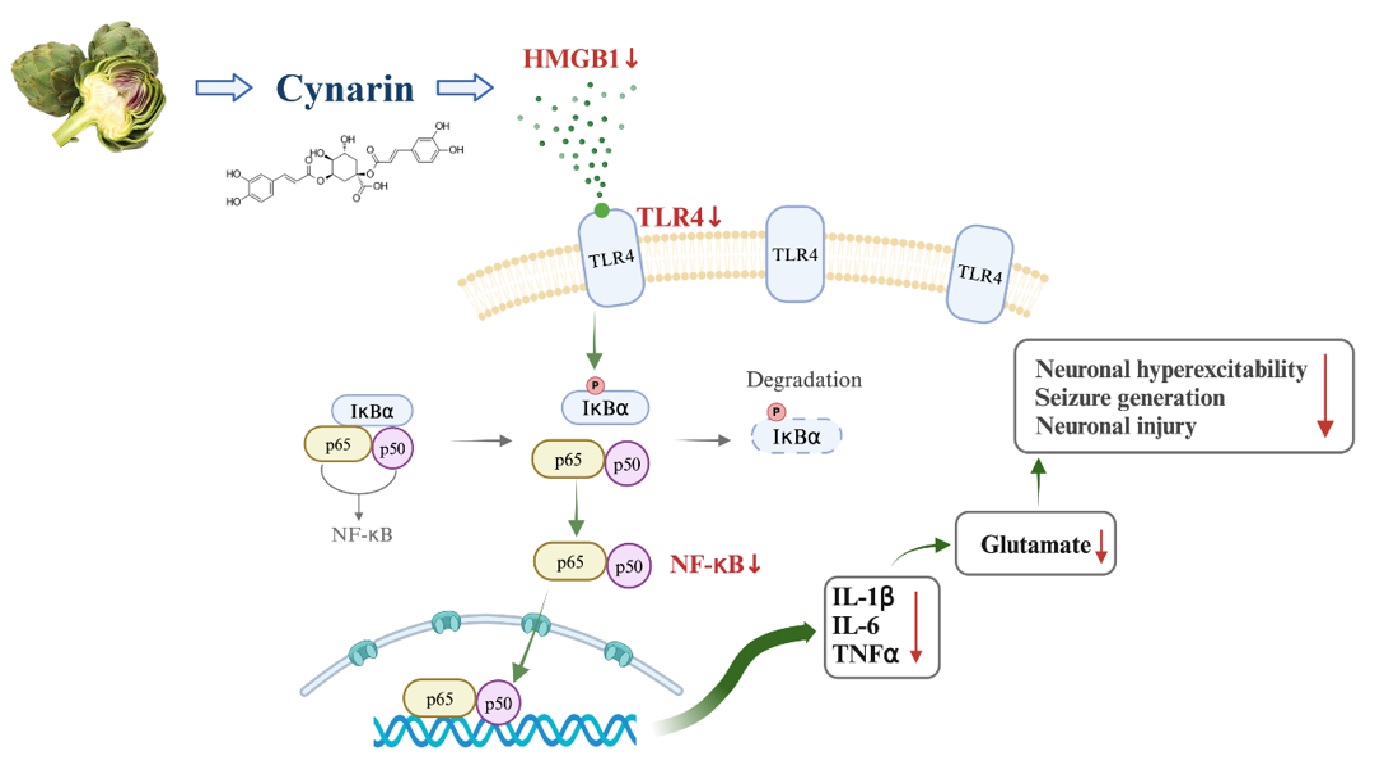Featured Scientist

Su-Jane Wang, Ph.D.
Professor
Cynarin protects against seizures and neuronal death in a rat model of kainic acid-induced seizures
Cynarin was administered through oral gavage at a dosage of 10 mg/kg daily for 7 days before the induction of seizures with KA (15 mg/kg) via intraperitoneal injection. The results showed that pretreatment with cynarin effectively attenuated KA-induced seizure score and electroencephalogram (EEG) changes and prevented neuronal loss and glial cell activation in the hippocampus of KA-treated rats. In addition, pretreatment with cynarin dramatically prevented the aberrant levels of high mobility group box 1 (HMGB1), toll-like receptor-4 (TLR4), p-IB, p65-NFB, interleukin-1β (IL-1β), interleukin-6 (IL-6) and tumor necrosis factor (TNF-α) induced by KA administration in hippocampal tissues. Additionally, KA substantially increased hippocampal glutamate levels and decreased cerebral blood flow, which was significantly alleviated by pretreatment with cynarin. The observed effects of cynarin were comparable to those of the antiepileptic drug carbamazepine (CBZ). Furthermore, there was no significant difference in the serum AST, ALT, creatinine, or bilirubin levels between the cynarin-treated rats and the control rats. Cynarin has a neuroprotective effect on a rat model of seizures induced by KA, reducing seizures, gliosis, inflammatory cytokines, and glutamate elevation and increasing cerebral blood flow. Thus, cynarin has therapeutic potential for preventing epilepsy.
Keywords:epilepsy; cynarin; neuroprotection; antiinflammation; glutamate decrement; kainic acid.
13 views